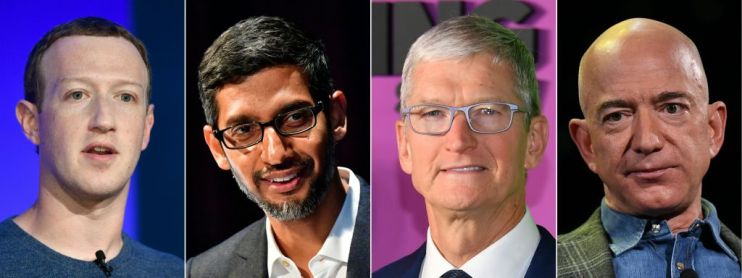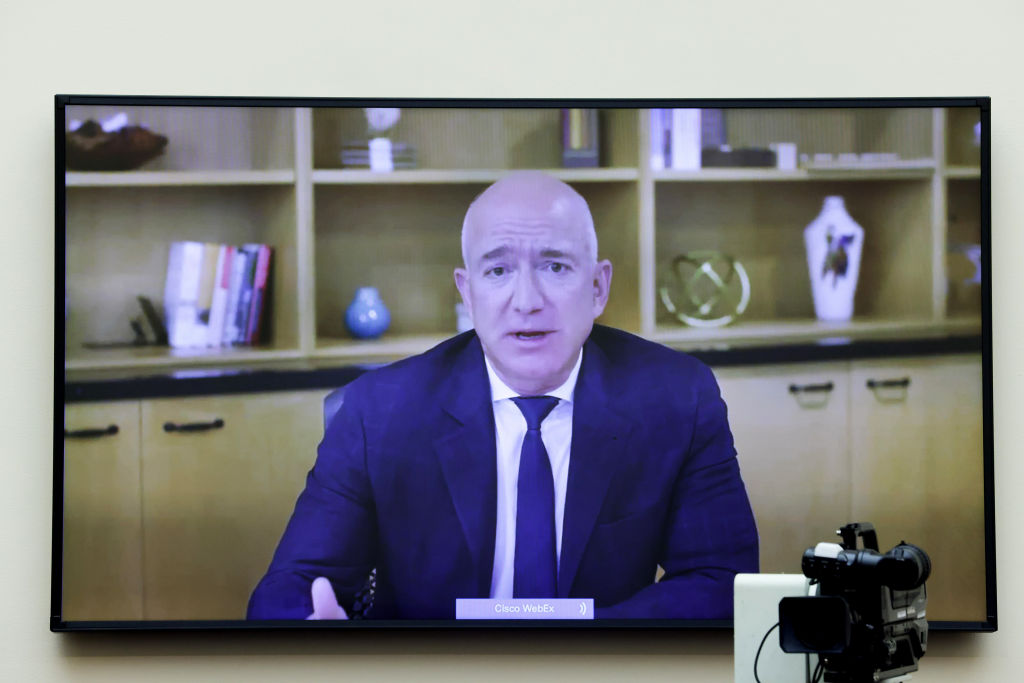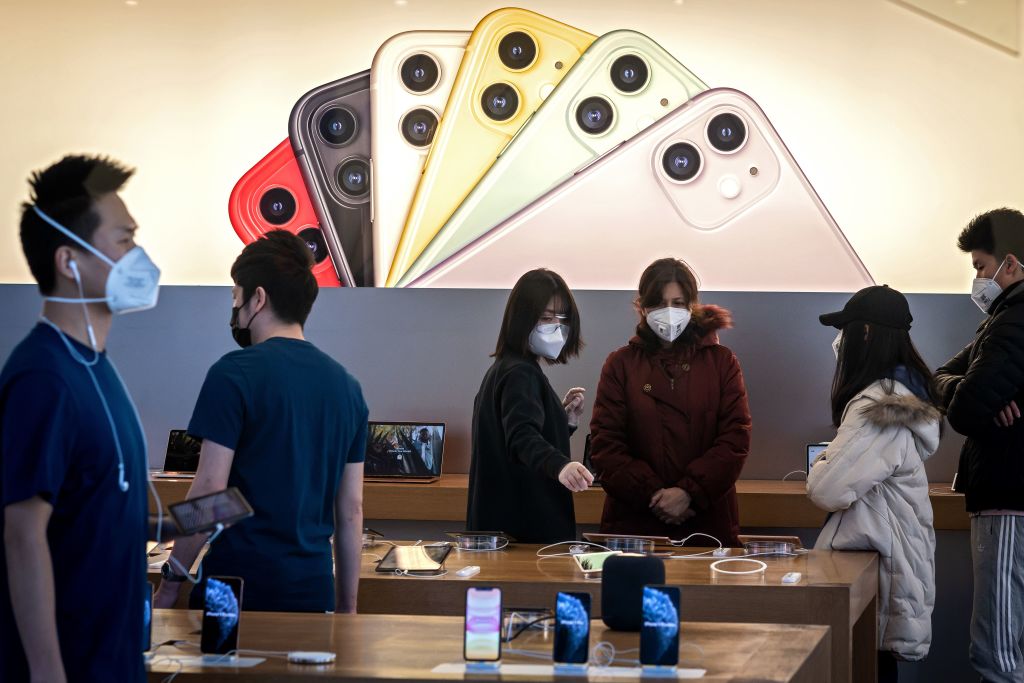Big Tech cashes in on worst day for US economy since Great Depression

The world’s four largest tech firms yesterday announced blockbuster earnings for three months to June, despite the US economy facing its darkest day since the Great Depression.
Facebook, Google, Amazon and Apple, worth more than $5 trillion ($3.81 trillion) in total, smashed expectations as they all posted record profits yesterday.
The upbeat results were met with euphoria on Wall Street, with Facebook shares rising seven per cent, shares in Google parent Alphabet rising 2.7 per cent and Amazon shares climbing four per cent after market close.
Apple shares rose 4.8 per cent in after-hours trading to smash the $400 mark for the first time.
Earlier in the day, markets tumbled across the globe as latest figures showed a 33 per cent slump in the US economy — the worst plunge since records began in 1947.
The Silicon Valley firms’ resilience to the wider economic pandemonium comes as the four biggest tech firms face a generation-defining probe into their size and power.
On Wednesday, Facebook, Google, Amazon and Apple’s bosses faced hostile questioning by the US Congress, where they were accused of using their platforms to boost their personal wealth and stifle competition.
But hopes that the committee hearing might form “tech’s Big Tobacco moment”, as described by one US tech regulator, were swiftly drowned out by yesterday’s results.
Facebook posted 11 per cent growth in revenue to $18.7bn for the quarter, after users on its three social media platforms swelled to encompass half of the world’s population.
Chief executive Mark Zuckerberg brushed off recent advertising boycotts, which saw more than 1,000 high-profile brands pull their ads from the platform, saying that critics still “wrongly assume that our business is dependent on a few large advertisers”.
Zuckerberg slammed the media for portraying his company unfairly, arguing that Facebook was offering a lifeline to small businesses.
He said restrictions would “reduce opportunities for small businesses so much that it would probably be felt at a macroeconomic level”.
But Ipek Ozkardeskaya, senior analyst at Swissquote Bank, said Facebook’s results were less than they appeared to be.
“Facebook’s revenue increased 11 per cent on improved user growth and engagement rates. Yet, this was the slowest pace of growth since the company went public in 2012 due to a heavy pressure on its ad business,” said Ozkardeskaya.
“The company’s struggle with lower advertisement revenues due to the broad-based boycott will likely temper the ad revenue growth in the coming quarters, but Facebook estimates that the current quarter should bring a 10 per cent growth on ads.”

Amazon
Amazon was buoyed by explosive demand for grocery deliveries during the pandemic, which saw it double quarterly profit year on year.
Investors had expected the company’s profit to be wiped out by the coronavirus crisis. But the e-commerce giant defied expectations, raking in a record $5.2bn for the period, even after spending $4bn on Covid-related costs.
The retailer was quick to note that it has created more jobs over the last decade than any other company, including 175,000 since March, and now employs more than 1m people.
The company’s overwhelming success during the pandemic has seen chief executive Jeff Bezos’ personal wealth explode in recent weeks.
Bezos saw his fortune hike $13bn in a single day last week, in what was believed to be the largest single-day individual wealth jump of all time.
Hugh Fletcher, global head of consultancy and innovation at Wunderman Thompson Commerce said: “Amazon has had a strong performance during lockdown due to its ability to continue to provide a service to customers, with an unrivalled worldwide infrastructure and access to stock that is second-to-none.
“With Amazon making clear headway over its rivals, the focus will likely turn to the company’s image.”
Apple
Apple saw its market capitalisation jump more than $100bn last night, after it turned an expected period of contraction on its head.
Despite forced closures during the coronavirus crisis, Apple posted an 11 per cent growth in revenue for the quarter, which boosted its balance sheet by around $6bn.
The firm said sales of its iPad and Mac hit $6.58bn and $7.08bn respectively, beating expectations of $4.88bn and $6.06bn.
Apple chief Tim Cook acknowledged that the firm’s earnings “stand in stark relief during a time of real economic adversity for businesses large and small, and certainly for families”.
Michael Hewson, chief market analyst at CMC Markets, said: “Apple saw its fiscal year get off to a cracking start in the first quarter posting a record net income and revenue of $91.8bn and $22.2bn respectively.”

Google parent Alphabet smashed expectations, though it posted a revenue drop of two per cent for the period.
The drop marked Alphabet’s first fall in 16 years, after a slump in avenue revenues as businesses tighten their belts during the pandemic.
But the decline beat Wall Street expectations, after a brief fall in shares rose marginally after hours.
Martin Garner, chief operating officer at CCS Insight said: “Google has been stung in the second quarter by its weaker position in online shopping, compared to some of its peers. It is mounting a big push to build a better position, with aggressive moves to attract merchants, such as zero fees and commissions.”
However, Garner added that the search engine giant saw growth in its non-advertising units.
“The company saw strong growth in Google Cloud Platform, Google Play and YouTube subscriptions as more businesses moved their work and data to the cloud, and as consumers devoured more devices, games and media.”